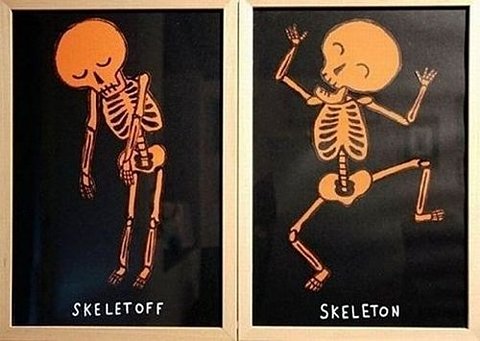Four Macs were sleeping. These Macs weren’t any ordinary machines – no, they had been granted the privledge, or rather, the honour, of being what some called the demo machines, what others still called “the machines that contained the Photo Booth application”.
Demo MacBooks and MacBook Pros in an Apple reseller don’t live very secluded lives – they’re always on display for customers to prod, poke, and inspect. It’s a wonder how durable these machines actually are – a testament, if you will, to Apple’s genius-level of engineering and craftsmanship (or more accurately, the craftmanship of the robots in China).
Day in, day out, all they do is sit there and look pretty – allowing eager salesmen (and saleswomen!) to show off the wonderful world of Mac, demostrating such applications like iPhoto, iMovie, and iTunes – as well as other cool Mac things, like the cool screen-zoom for the visually impaired, the cool multi-touch trackpad, and the awesome MagSafe power connector. It’s features like these that set Mac apart from the rest, nevermind the industry-leading Aluminium Unibody, or the amazing 7-hour battery life, which means you can watch at at least 6 episodes of your favourite 40 minute TV show, or, stay up ALL NIGHT working on that presentation that’s due tomorrow. Your pick.
But the hardware is only half the story. Any person can hack together bits and pieces and call it a computer, but the heart of the Mac is OSX, and it’s OSX that powers these demo machines. Currently in it’s seventh revision, OSX doesn’t just provide an excellent user experience (note the difference between user interface, and user experience), it also makes the system “just work”. The integration between iLife applications is unparalled – the Media Browser available to most, if not all, Apple applications ensures all your pictures, movies, and music are always at your fingertips, right where you need them.
But that’s not all. Being a Mac isn’t about the hardware, or the software. Sure, those things come into it, but at the end of the day, it’s the Mac community that comes into it’s own. Like a secret handshake during a ceremony, or an all-knowing nod during some other proceding, the phrase “I’m a Mac” makes you stand out from the crowd.
There was one guy on Twitter who asked an innocent question about the iPhone this one time – within minutes, he had answers that not only answered his original question, but also gave him (and a couple others) previously unknown knowledge about a feature on the iPhone.
As a Mac (or as an iPhone), you too can rest assured that there will always be people you can turn to to ask for help – you DID buy the AppleCare, didn’t you? 



